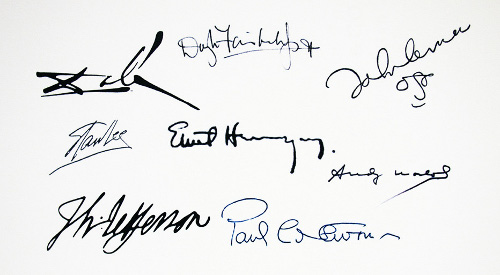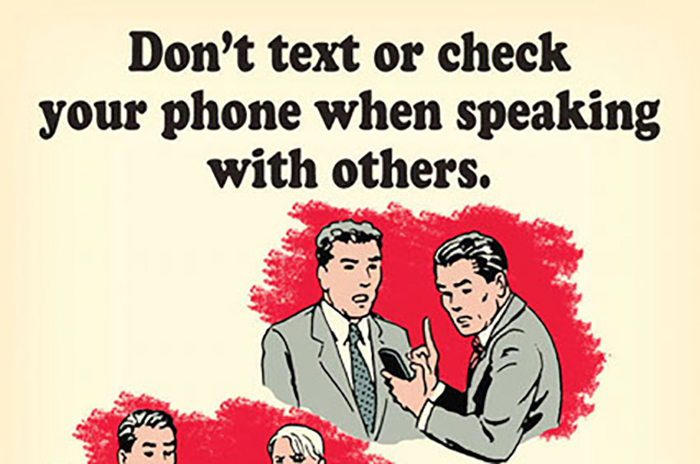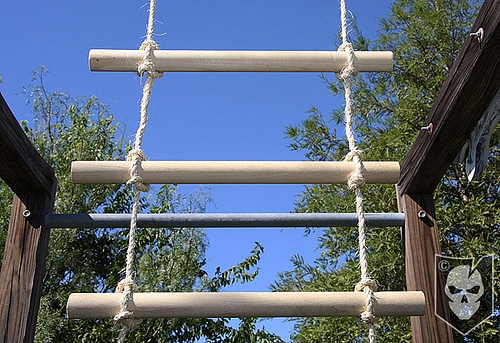
After doing the podcast on the “Making of Modern Immaturity” a few months ago, and reading the comments left on that post, I got to thinking about this question: “What makes a man mature anyway?”
Masculine maturity used to be easy to spot and define: a man got married, sired some progeny, and got a job to support his family. He knew he was a grown man and everybody else did too.
These days those kinds of markers are being put off more and more. There are a variety of reasons for this, some cultural, some economic. There’s nothing inherently wrong with this trend. While I’m a proponent of working hard at your job and getting hitched to the right woman once you know she’s the one, these things simply don’t happen at the same time for every man.
And while I personally believe that getting married and having kids is one of the most effective ways to grow and mature as a man, I’m not comfortable saying that men who don’t do these things aren’t mature men. Otherwise, you’re stuck with the position that men who are Catholic priests or Buddhist monks aren’t mature men. If you believe that, you need to go say ten Hail Mary’s and then rejoin this discussion.
The problem is, in the absence of these old markers of maturity, guys don’t know how to transition from boys to men. They may not find the marriage/kids/corporate job gig appealing, but they also aren’t keen on remaining a perpetual adolescent. They feel stuck between these two guideposts-no longer boys but not yet “settled down”-and don’t see any models on how to proceed. The gap has become a life stage wasteland for men, where guys are drifting along like amoebas.
So I’d like to suggest a definition of maturity for our modern age. And it’s embodied in this phrase:
Create More, Consume Less.
Boys are consumers. When they’re young, their parents set up their experiences for them; their only job is to sit back and enjoy it. They live in their parents’ house, eat their parents’ food, and use their parents’ stuff. Their free time in used in amusement. They consume their parents’ resources and are passive and taken care of. They make little to no impact on the world and have little ownership of their lives. They are dependent.
The problem is that men aren’t outgrowing this passive role. Instead of creating, they go on consuming. They may not depend on Mom and Dad anymore (although sadly, they often do), but they’re still dependent on stuff for their happiness. Consuming clothes, movies, video games, cars, parties, fast food, and even travel to make them happy. They live only for their own pleasures and amusements.
But it is boys that live only for themselves; men fully enjoy life’s pleasure but also live for a higher purpose. Boys try to find themselves in what they buy; men find themselves in what they do. Boys base their identity on what they consume; men base their identity on what they create.
The failure of men to transition from being shoppers and consumers to producers and creators has four profound implications for the vibrancy of manliness.
The Weakening of Man’s Free Agency
As we’ve mentioned many times, men desire to be the captains of their destiny, to feel in control of their life. We want to be free agents and be able to turn our ship in any direction at any moment.
Consumerism feeds directly into this desire, but offers a simulated and easier version of it. Consumption, being able to choose between many options, a myriad of different products and services, is sold as the ticket to true freedom and sovereignty.
In truth, this kind of “freedom” is only an illusion. Mathew B. Crawford, in Shop Class as Soulcraft, explains:
“The activity of giving form to things seems to be increasingly the business of a collectivized mind, and from the standpoint of any particular individual, it feels like this forming has already taken place, somewhere else. In picking out your [Build-a-Bear’s] features, or the options for your Warrior or Scion, you choose among predetermined alternatives. Each of these alternatives offers itself as good. A judgment of its goodness has already been made by some dimly grasped others, otherwise it wouldn’t be offered as an option in the catalogue. The consumer is disburdened not only of fabrication, but of a basic evaluative activity…The consumer is left with mere decision. Since this decision takes place in a playground-safe field of options, the only concern it elicits is personal preference. The watchword here is easiness as opposed to heedfulness. But because the field of options generated by market forces maps a collective consciousness, the consumer’s vaunted freedom within it might be understood as a tyranny of the majority that he has internalized. The market ideal of Choice by an autonomous Self seems to act as a kind of narcotic that makes the displacing of embodied agency go smoothly, or precludes the development of such agency by providing easier satisfactions. The growing dependence of individuals in fact is accompanied by ever more shrill invocations of freedom in theory, that is, in the ideology of consumerism. Paradoxically, we are narcissistic but not proud enough.”
Consumerism offers so many choices that we fail to see that they all reside within a predetermined box. The great paradox in the struggle for modern manhood is that we simultaneously feel adrift because of anomie and cripplingly trapped because of consumerism.
The Suppression of the Urge to Create
Men have an inherent desire to be creators, to change the landscape, to turn wood into furniture, to transform a blank canvas into a work of art-to alter the world and leave a legacy. It’s the denial of this aspect of manliness that is perhaps most plaguing modern men. Young men are taught to think of life past 30 as a certain death, a time when they have to stop being selfish and live for others. The paradox that’s never talked about is that consuming is the real dead end when it comes to happiness. Your mind gets caught in an fruitless cycle-new experiences initially give you intense pleasure, but the more you consume of it, the more saturated your pleasure sensors become until you have to ratchet up the intensity and quantity of the experience to get the same “high” you used to. And the cycle endlessly continues.
But when you create instead of consume, your capacity for pleasure increases, as opposed to your need for it. Being a creator gives you a far more lasting and deeply satisfying happiness than consuming ever will.
The Weakening of Discipline and Commitment
The problem with consumerism is that it heavily emphasizes choice, to the complete exclusion of the idea of living with that choice. Choose, choose, choose. But what happens after your make that choice? Of course, this isn’t a concern of consumerism, because the answer would be to start thinking about the next choice. We are never asked to move on from consumption to commitment.
That might work with your toothpaste, but the most important things in life can’t be replaced on a whim. They require the discipline necessary to build something strong and valuable and special, the ability to stick with something through thick and thin. The shopping around mentality is devastating to true manhood.
The Distraction from What’s Truly Important
Consumers are driven by the desire to find products and experiences which will allow them to experience in reality the things that they has been dreaming about. Of course the new product or experience can never bring the level of pleasure that the person had imagined it would. The person then becomes briefly disillusioned before conjuring up a new and improved daydream about another item or consumable experience that they believe has a better chance of consummating that longing. Yet the imagination is always one step ahead of reality; no matter how fantastic the acquired good is, the imagination will have always been hoping for something even more perfect. Thus a cycle of longing-acquirement-dissatisfaction-longing, is perpetuated.
While the gap can never be closed, this does not discourage the consumer. The consumer actually derives more pleasure from the longing, from imagining and anticipating the next purchased product or experience, than acquiring the actual product. Pleasure is found in the tension between imagination and reality, anticipation and climax.
This “pleasurable discomfort” is not a bad thing; it’s the hunger that drives us towards all goals, from the shallow to the worthy. The discomfort comes from the gap between how you want your life to be and how it is; it’s a vital feeling that drives us forward. Studies have proven that we actually get more satisfaction from the striving towards a goal then we do from the attaining of it.
The problem with consumerism is that it satiates our discomfort with passing and superficial pleasures, distracting us from what that hunger is really calling out for. We should be seeking to alleviate our “discomfort” by improving ourselves, our virtues, and our strengths, forever trying to become more than we are.
Create More, Consume Less
I’ve taken some flack for being too hard on video gamers. In truth, I don’t think there’s anything wrong with playing an occasional video game. The reason I frequently mention video games in connection with the problem of arrested manhood, is not the games themselves, but what they symbolize.
Whereas men once fought as soldiers, they now pretend to be ones. Where men used to play baseball and football, they now control avatars who play for them. Where men used to play an instrument, they now press buttons on a plastic toy. Where we once created, we now consume.
Why play a plastic guitar for hours instead of learning how to play the real thing? The answer of course it that doing the real thing is harder. Struggling with something tangible, something without a reset button takes dedication and commitment. So why bother?
The labor one performs transforms something in the environment, which in turn transforms you. The act of creation shapes you as a man, refines your sensibilities, improves your strengths, hones your concentration, and builds your character. Passive consumption leaves you untouched and unchanged. Consumptions breeds indifference; creation begets empowerment.
Creating can take many forms. The traditional ones are still some of the best: creating in your job, creating a life of love with your spouse and friends, and creating children. But there are other ways to create as well. Service to your community. Hobbies like gardening, blacksmithing, art, and music. Inventing, writing, blogging, political participation. Creating experiences for other people. Creating a spiritual life. And simply creating your character every day.
Growing up doesn’t have to mean donning a gray flannel suit. It really means taking an active role in the world instead of a passive one. Making an impact. And creating your world instead of consuming it.







